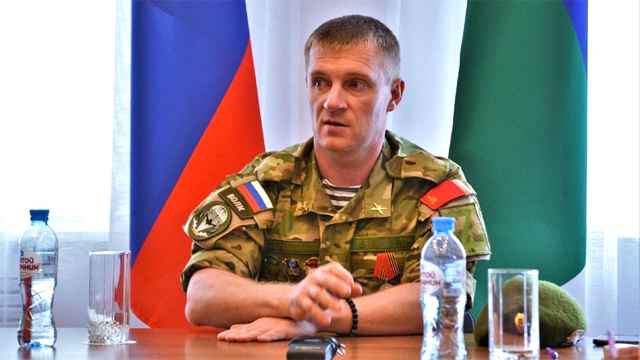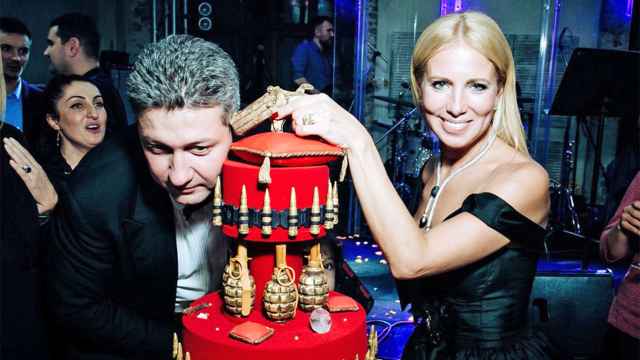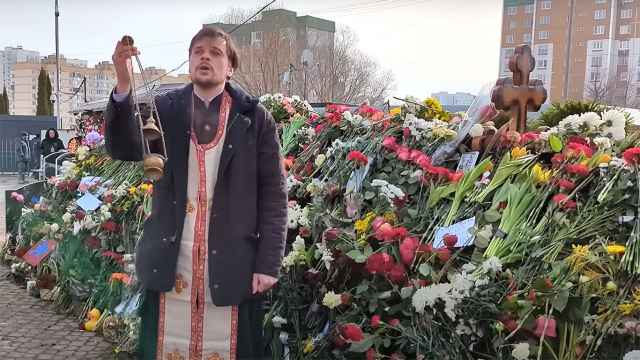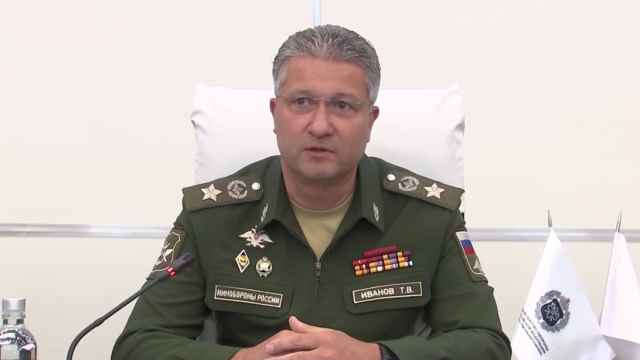BRUSSELS — Mocked by Moscow, the European Union needs to impose far tougher sanctions over Crimea to make President Vladimir Putin sit up and pay attention, but its ability to come to a consensus on them is limited — and such a consensus may not be achievable at all.
Russia's response to the first phase of EU sanctions — travel bans and asset freezes on 13 Russian and eight Crimeans — has been dismissive. Deputy Prime Minister Rogozin took to Twitter to ridicule the EU and the U.S., calling their steps weak and meaningless.
Some EU foreign ministers quietly agree and are frustrated. They wanted harder-hitting sanctions, but EU restrictions have to be agreed upon unanimously, which means the measures are only as strong as the country with the deepest reservations will allow.
Austria is among the doubters. "Sanctions do not solve problems," said Chancellor Werner Faymann. "The solution can only be getting to negotiations."
EU leaders meet in Brussels on Thursday, when they will discuss widening the net, adding names to the 21 already on the travel-ban and asset-freeze list, possibly including tycoons or people close to Putin.
Resistance to escalating sanctions, which aim to punish Putin for bringing Crimea into Russia, is strong.
At a small lunch held a few days before the first phase of sanctions was imposed on Monday, one EU ambassador cautioned against moving too quickly or aggressively on Moscow.
"We do not want to end up on an escalator where we do not know where it is going," he said, arguing that once you take the first step on sanctions, there are immediate calls for more substantial measures to increase the pressure.
"What do you do when sanctions run out?" he asked, leaving hanging the inference that the EU does not want — and could not afford — a more physical confrontation with Russia.
In the end, the ambassador's country joined the rest in unanimously agreeing to measures that were less tough than sanctions imposed by the U.S.
"We have done what we said we could do, but, yes, the U.S. is from Mars, we are from Venus," said Polish Foreign Minister Radoslaw Sikorski, who wanted at least four more names on the EU list but was rebuffed by other member states.
"I would suggest that we are not overly enthusiastic when it comes to introducing sanctions, because we will pay for it."
//Tied Up in Knots
While it may be possible to secure agreement among all 28 member states this week for an expansion of the list — diplomats have said there are up to 100 names under consideration — it is unlikely to deter Russia very much.
Instead, the critical question is whether the EU can agree on the step that would come after, the escalation of sanctions to include finance and trade, measures that would directly harm Russian exports, businesses and banks — and the EU as a result.
The third stage, which EU leaders agreed on March 6 they would move to if Russia took further steps to destabilize Ukraine, would be akin to sanctions the EU and U.S. have imposed on Iran over its nuclear program. It would carry serious consequences for Moscow.
The problem is that very few member states want to contemplate it, so serious are the possible consequences, both from the impact on bilateral business and likely retaliation by Moscow.
From Finland, with 1,300 kilometers of shared border with Russia and a history of war enmity, to Cyprus, which has close banking, property and investment ties with Russia, there are reasons for nearly every EU country to have concerns.
Germany is among those most determined to stand up to Moscow, but it takes 40 percent of its gas from Russia. Britain wants to be tough, but Russian businesses and billionaires use London as their financial center. France has nearly $50 billion of exposure to Russia.
Spain, Portugal, Italy, Romania, Bulgaria, Greece and the Baltics have similar or related reasons to be reluctant, along with Austria.
"We will reach the stage where those EU countries who have interests and investments in Russia will be heavily penalized," said Nigel Kushner, chief executive of W Legal, a London law firm, who sees little chance of escalation working.
That leaves the EU in a quandary. It can add more names to existing sanctions this week and just about maintain unity, even if it does nothing to bring Moscow into line. But going any further — the step that is required to hurt Moscow — may prove too difficult and divisive, and Russia knows it.
Instead, the EU may be left looking for diplomatic ways to admonish Moscow, while quietly having to accept that Crimea is in Russia's hands and the territorial integrity of Ukraine has been shattered.






